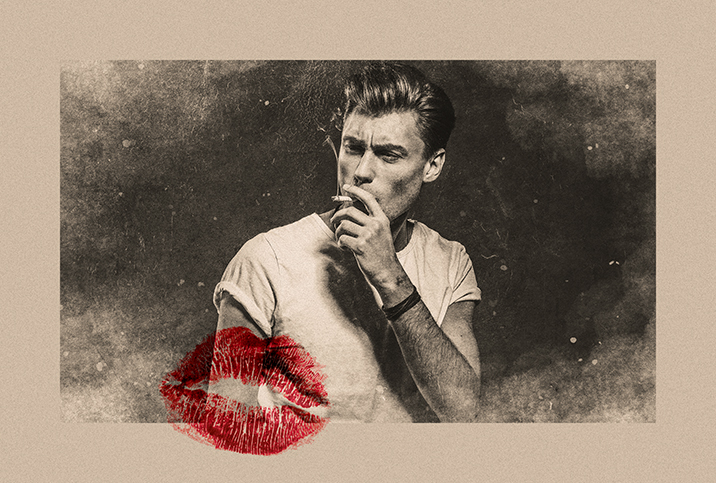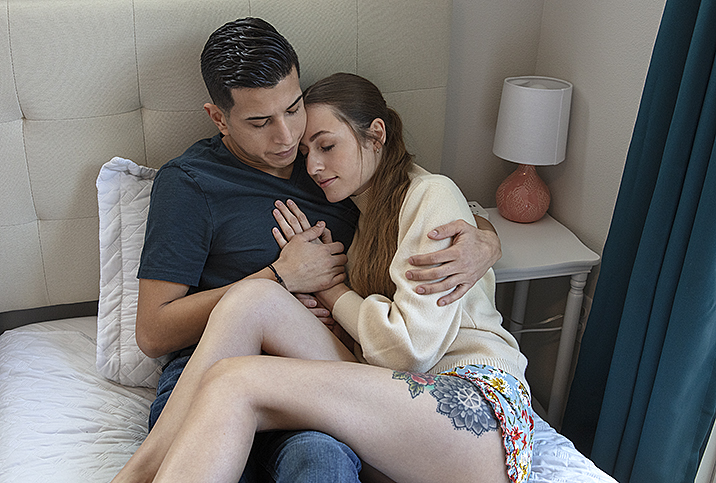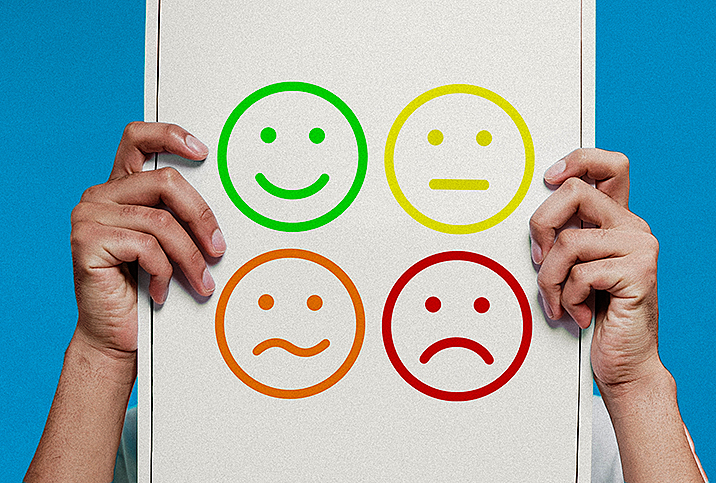What Makes Bad Boys So Irresistible?

"Hello. This is a prepaid call from Cody Daniels, an inmate at the Travis County Correctional Facility. To accept this call, press 3."
After receiving this prerecorded message from a blocked number call, I obediently pressed 3, awash with relief. Cody hadn't been ignoring my texts after all—he was just in jail.
Cody not-his-real-last-name Daniels was an entrepreneur, let's say, who I'd met at a party while trying to purchase "pogs," let's call them, back before I'd gone to rehab for "pog addiction," let's call it. For reasons perhaps related to our pog transaction, I don't remember much about said party, but I do remember Cody: how I felt disarmed by his good looks; how he handed me a sweaty handful of pills (I mean, pogs) in a way I found charmingly unprofessional; how he grinned when he told me to take his number, "just in case I ever needed more pogs, not because he was trying to make it weird."
I was totally okay with it being weird, apparently, because I messaged Cody not three days later under the guise of needing to buy more pogs, kicking off a whirlwind few weeks of attending clubs, house music sets and 24-hour gambling cafes.
Once, while at a bar along Austin's more well-known nightlife drags, locally known as Dirty Sixth, Cody pointed out a pretty girl with glasses who'd been staring at us. "That girl is obsessed with me," he said, and added, "I don't know why, but girls get obsessed with me."
I nodded solemnly, immediately recognizing this to be true. By then, in case you hadn't noticed, I'd become a little obsessed with Cody, too.
The bad boy: An overview
I'm certain that my and the pretty girl with glasses' infatuation with Cody went deeper than an appetite for pogs—and Michael R. Cunningham, Ph.D., a professor and psychologist at the University of Louisville, agreed. Cunningham explained that drug dealers are "live-fast, die-young kind of guys….They can seem like Robin Hoods opposed to an unjust system."
Drug dealers, in other words, are bad boys—hypermasculine men dripping with testosterone, sexuality and emotional unavailability.
The bad boy is a time-honored cultural archetype. These days, he can often be spotted by his lip piercings and the sunglasses he is wearing indoors, as well as a faint air of oppressed sensitivity just waiting to be unleashed with the love of a girl like you."He's anybody your parents don't want you to date," quipped Cunningham.
In more science-y sounding words, bad boys are described as having the so-called dark triad of personality traits—narcissism, psychopathy and Machiavellianism. Even though most of us wouldn't list narcissism and psychopathy as ideal traits in a romantic partner, many of us nevertheless find ourselves inexplicably attracted to these "dark" qualities.
What makes bad boys so alluring?
Regardless of whether or not you've ever fallen for a drug dealer, I think most can relate to falling for a hot-but-troubled guy who your parents wouldn't want you to date. But beyond potential stick-it-to-your-parents appeal, what is so gosh darn seductive about the bad boy?
Hormones might be to blame, at least partly. Over the years, there's been a reasonable amount of research suggesting heterosexual women might prefer "masculine" men—or ones with traditionally manly traits, such as a pronounced chin, deep voice and dominant behaviors—when they are ovulating.
"It's not a huge shift, but it's a measurable shift," Cunningham said. "But there is a greater tendency to like or be attracted to the highly masculine guys at the time you're ovulating because the basic goal of every egg is to be fertilized."
Classic bad-boy and manly man features may be interpreted as signs of quality genetic material. The theory goes that highly masculine men make good sperm donors, if not the most reliable long-term partners.
So what about the other three weeks of the month when you aren't ovulating? Even if you take hormones out of the equation, there's plenty to love about a bad boy. For one, these hunky ne'er-do-wells have a long history of being celebrated in the media.
'We like anti-heroes...we have very ambivalent attitudes about social norms and following the rules, and doing what's expected.'
From Jim Stark and Cry-Baby Walker to Tyler Durden and Daniel Cleaver, "Americans have respect for and a long tradition of praising bad boys," Cunningham reflected. "We like anti-heroes, and the reason we like anti-heroes is we have very ambivalent attitudes about social norms and following the rules, and doing what's expected. We want social organization, but we chafe under it as well. Americans are contrary people."
And even with their flaws—or perhaps especially with their flaws—a troubled stud can be seen as a stallion to tame or a project to be fixed. But Pepper Schwartz, Ph.D., a professor of sociology at the University of Washington, warns against trying to "save" a bad boy.
When I asked her if she thought a bad boy could be "fixed," she returned, "The larger question is, can you fix anybody?''
Taking a stab at the larger question, she continued, "Maybe you can help somebody who wants to fix themselves—you know, somebody's drinking and says support me in AA or whatever. Somebody really wants to change themselves—then, maybe, maybe.
"But for somebody who's getting what they need by being a bad boy? No. I think a lot of people like to take on projects and they almost always find that it was a bad idea."
The rest of the story
All of this rings reasonably true for me and my bad boy. I'd been enchanted by Cody's manly albeit-methamphetamine-ravaged good looks, as well as the shiny parties and his seemingly endless train of adoring friends. I also enjoyed the way he helped jump-start my car and string tea lights around my apartment in places too high for me to reach. Perhaps equally fueling my obsession was the intriguing way Cody would disappear for days and sometimes weeks at a time, ignoring my texts, only to resurface with some shady explanation ("I'm in jail" actually being among the most legit).
As much as I wanted to believe his excuses and placations and promises that we'd go hot air ballooning in Costa Rica one day, in my heart of hearts, I could probably sense Cody's disinterest. Still, I held on like the lovesick fangirl I was, blowing up his phone with a string of increasingly needy texts.
One night, I consumed what I feared was a Fentanyl-laced batch of pogs I had purchased through him. Panicking, nauseous and convinced I was overdosing, I messaged Cody for help—but got no answer.
I survived the night (in retrospect, my nausea might've been caused by an expired tuna salad), but I knew I could no longer pretend Cody cared about me, and also that he wasn't maybe kind of a total jerk. I wish I could say this incident ended my infatuation, but I surreptitiously watched my phone waiting for it to light up with his name and a half-hearted apology text with some weird explanation for many months after. I don't like to admit it and it's not that often, but, even after going through pog rehab and many months of being pog free, I still think of Cody sometimes—though it's probably just because I'm ovulating.
Giddy Notice: The possession and use of prescription pills without a valid prescription is illegal in the United States, as described in the Controlled Substances Act and enforced by the Drug Enforcement Administration. Giddy in no way promotes, suggests, recommends, or endorses the use of any unprescribed drugs for any illegal or illicit purposes.


















